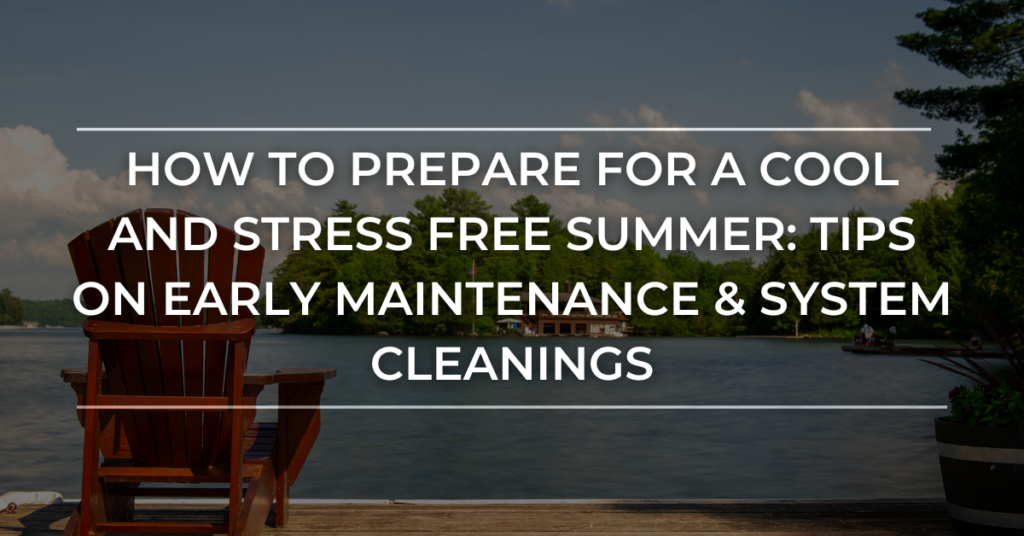
Are you looking for ways to make your home more efficient? A/C systems that work inefficiently are a burden on your home’s electricity bill. As the unit’s efficiency decreases, your energy costs start to increase over time.
There are a multitude of ways that individuals can cut down on energy costs noticeably—let’s take a moment to break down these 10 practical tips from Schambs Property Management.
Properly Seal Doors And Windows
The entry and exit points of a house are among the biggest contributors to air loss within a home. Warm air can sneak in and cool air can easily escape. This issue is especially prevalent in older houses with aged and cracking seals around the doors and windows. Pay attention to your doors and windows and ensure that they are not causing hot air to enter, or cold air to escape. If necessary, seal them off for the spring and summer season.
Keep Doors and Windows Closed Unless Temps are Mild
Unless temperatures are very mild and outside air is used to bring a cool breeze into the home, it is generally wise to keep doors closed. This will help keep airflow locked in and prevent drafts from occurring throughout the house. If a room is not being used, why waste the energy heating it? Keep doors closed whenever possible and cut down drastically on the unnecessary cooling.
Keep Vents Clean and Clear
Your vents can often end up as an afterthought in your home decor organizing. As a result, they become blocked by rugs, furniture, even clothing sometimes. However, this is coming at a significant cost to the efficiency of your cooling system. Cleaning your vents regularly of any dust or debris helps improve airflow and longevity. The cleaner and more clear your vents are the better results you will get.
Check Air Filters For Dust and Debris
Air filters tend to accumulate dust and debris. Make sure that the filters are always clean. Any major build-up of dirt in the filters will greatly reduce the energy-efficiency of your entire A/C system.
Test Your HVAC Efficiency
Contacting a professional HVAC technician to come out and examine your HVAC system can save you a whole lot of money. Getting a HVAC system tune-up done will ensure that all of the moving parts, pieces, and components are well maintained and in good working order. If your HVAC system is working at optimum efficiency you are going to drastically cut down on your monthly bill.
Ensure Cracks Around Pipes Are Sealed
Piping throughout a house creates tons of opportunities for cool air to escape–especially into basements and attics that are not properly insulated. Take a moment to check underneath your sinks, plumbing, and various exposed piping that might be poorly sealed. With caulking or spray foam you can reseal or seal the exposed cracks and help prevent cool from escaping through them.
Adjust Your Thermostat
Whenever you’re not home you should always adjust the temperature of your thermostat. Studies show that even a 5-8°f difference can save as much as 10% per year on your annual energy costs. This can be a massive saving when added up over time. So, remember whenever you leave the house for extended periods of time, adjust the thermostat. Why pay to cool a house that you aren’t in?
Have you considered smart thermostats and controls? These modern thermostats can be controlled and programmed via smartphone apps, allowing you to cool and heat your home even when you’re not there. Many will learn about your preferences, which results in autonomous temperature regulation and programming.
Place Thermostat In an Optimal Location
A/C cycles are highly dependent on the location of your thermostat. When placed in a less than optimal location, your A/C efficiency can be greatly impacted. You don’t want to place your thermostat where it can be directly exposed to sunlight. That’s because the sunlight is accompanied by warmer temperatures, which will trigger you A/C more often than needed. These false signals will increase energy consumption in your home.
Lamps, heaters, and personal computers are all good examples of appliances that emit a significant amount of heat. You should keep the thermostat away from all heat-producing appliances. Otherwise, this heat will lengthen your A/C unit working cycles.
Make sure that your thermostat sits in a level position. Any other position could make your thermostat send out erroneous signals, which triggers short cycling or even continuous running.
Draw Curtains or Blinds in Well Lit Rooms
The sun has a remarkable ability to heat your home even with A/C at full blast. Drawing curtains or blinds in living spaces with large windows will help block solar heat that may permeate throughout your home.
Reduce Hot Water Temperature
Hot water accounts for nearly 17% of the average household energy use. Heating that water can be a massive drain on energy and rack up a hefty bill each and every month. By reducing your hot water to just 120°f you can make a significant dent in your overall energy and heating costs. For every 10°f reduction in hot water temperature, you will save around 3-5% annually. The bulk of hot water usage in the average household is the dishwasher and washing machine for laundry. These appliances do not necessarily need scalding hot water and can stand to have the water reduced a bit.
The Bottom Line: Improving A/C Efficiency
There is a direct relationship between your electricity bill and the efficiency of your A/C. Just following these practical steps to improve A/C efficiency is enough to generate sizeable savings:
- Properly Seal Doors And Windows
- Keep Doors and Windows Closed Unless Temps are Mild
- Keep Vents Clean and Clear
- Check Air Filters For Dust and Debris
- Test Your HVAC Efficiency
- Ensure Cracks Around Pipes Are Sealed
- Adjust Your Thermostat
- Place Thermostat In an Optimal Location
- Draw Curtains or Blinds in Well Lit Rooms
- Reduce Hot Water Temperature




